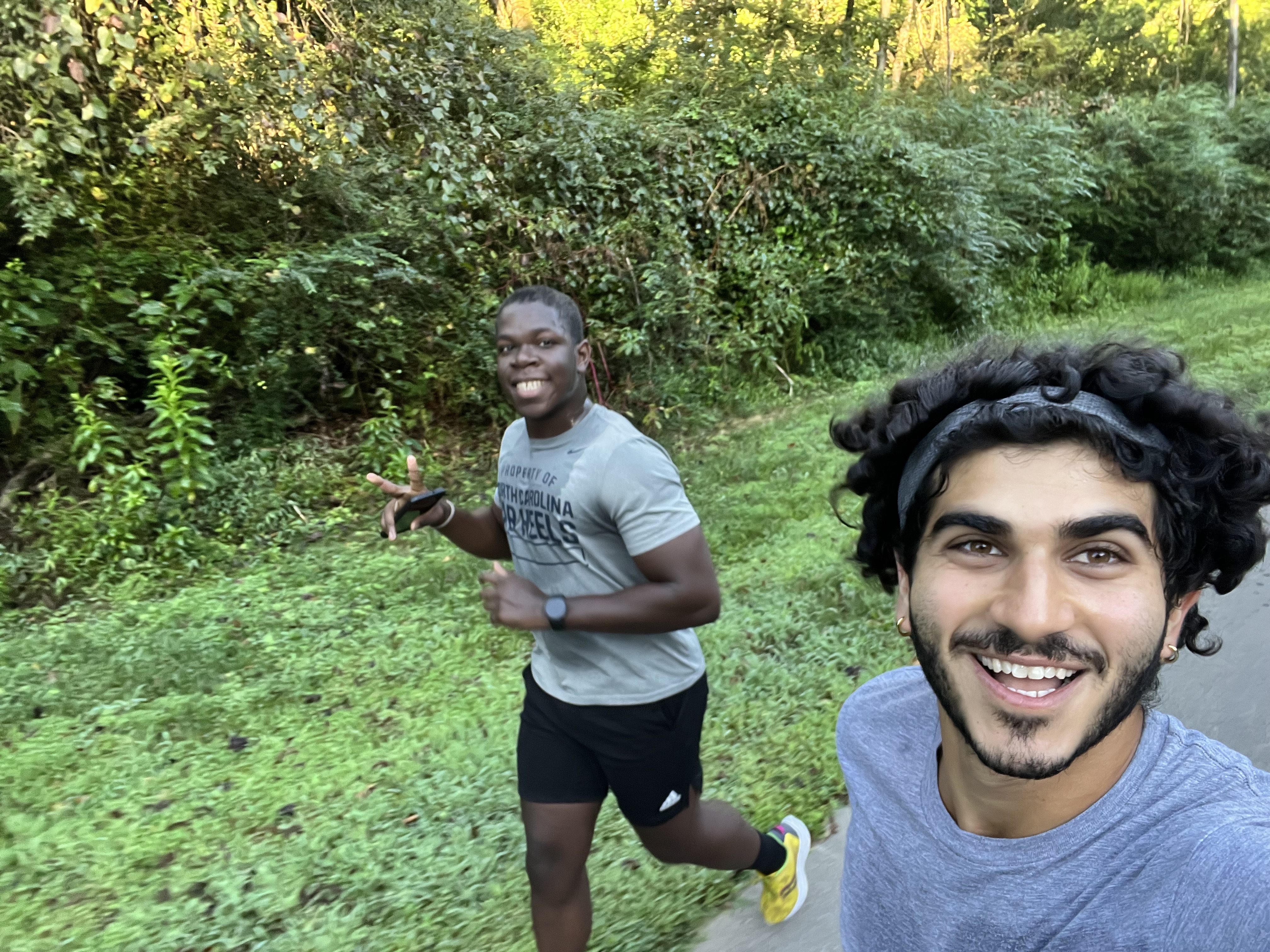about
I will soon begin the DPhil in Economics at the University of Oxford, and will graduate with my MPhil in Economics later in 2024. I graduated in 2021 from the University of North Carolina at Chapel Hill, where I studied economics, applied physics, and Latin. These days, most of my time is spent researching, writing, or hanging out with some of the coolest people in the world. I am very lucky, and try to do good work while also having a good time.
keywords: economic theory, refugee resettlement, matching markets, storytelling for mental health, learning and relearning my ancestry, creative writing, basketball, biking, spontaneity
proudest of: I'm confident I have some of the most genuine, hilarious, motivating, and enduring people in the world as my friends. I am really, really proud of that.
face to the name: Here's a picture of me running with my friend Sam. (Click to enlarge.)

longer version
I’ll soon be a doctoral student in economics at the University of Oxford. I am primarily interested in contributing to the collective social good in a magnitude far exceeding my one-in-eight-billion proportion, because of the generous opportunities I have been afforded by kind and gracious people.
I study and research microeconomic theory, at first because of a chance relationship with Kyle Woodward, my undergraduate supervisor, and still because of an intended relationship with Alex Teyltelboym, my supervisor at Oxford. Each is incredibly brilliant and good-hearted, the former attribute making them wise and the latter making them easy to learn from. Microeconomic theory allows for the study of humanitarian problems using a theoretical-mathematical framework––the domain for which, for one reason or another, has fallen in the realm of economics. (A functional definition of microeconomic theory is “applied theoretical-mathematical problems”—that is, applying math in economic contexts, where there are rewards and constraints, and where strategic behavior is important to analyze.)
I’m currently writing an introduction to a textbook called Equal by Design: Economic design responses to inequality, which focuses on the applications of market design that resolve social inequality. I previously wrote about a very applied problem––refugee resettlement––and the way that a centralized UN (a centralized state government) can optimize the allocation of refugees to countries (hosts); I’ve additionally worked on more theoretical questions. My master's thesis asked: what can we expect of a particular two-sided matching, when utility-maximizing agents must interview with a firm to learn their utility from matching with them? Other work of mine has analyzed the certainty around the bounds of average utility in any two-sided matching market.
I also write creatively. Influenced by the part of me that is academic and also that is really tired of competing for things—additionally those which take me away from writing (Annie Ernaux writes on arranging her father’s funeral, “These preparations had nothing to do with my father”)—I try to post my writing as “working drafts.” I understand that this limits my ability to publish in journals, but this habit of publishing what I would call “unfinished” work feels in line with my values; which, I would say, includes understanding that we’re all in progress, and creating is not effortless.